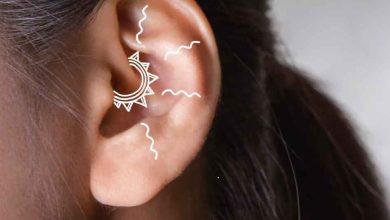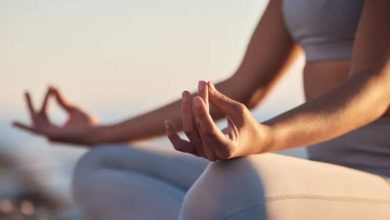Techniques to lower the general level of anxiety

The level of anxiety that the human organism can bear with ease and without paying the price of undesirable side effects, is more limited than our culture, based on productivity, duty, ambition and competition, is willing to admit.
We have been able to believe that we can be distressed and we can endure without the tool in which we are suffering. This ignorance of our limitations (the fact that we function optimally only with a certain degree of well-being) is what fundamentally leads us to ignore the signs of discomfort that our body emits until the effects are so exaggerated (panic attacks, tremors, sweats, blush, dizziness, etc.) it is too late to suppress rennet with mere will.
The overflowing level of the river of anxiety has numerous tributaries, and our quality of life depends on the wisdom we have in stopping the different channels from which anxiety flows.
Some resources are used to reduce the general state or baseline we have on average (for example in the last month). Other techniques fall into what we might call emotional control.
Here is some techniques to lower the general level of anxiety
Exercise
Proper exercise helps us to tone muscles, avoiding both stiffness and excess activation of the nervous system, causing a healthy tiredness that favors restful sleep and calms the excess of thoughts and rumination.
If our physical state is unfortunate (we have symptoms such as dizziness, dizziness, nausea) and we can not tolerate intense exercise, you can choose to divide it into small fragments throughout the day and start at a very smooth pace until you gain enough well-being to address larger efforts.
It is preferable to practice a recreational sport that we like or have enjoyed in the past, as it will provide us with greater satisfaction than cold and heavy gymnastics.
Habits of sleep and food
The over-effort involved in a disorderly life has a weight in itself as a stress or in the overall result of excessive anxiety.
Not a few people have become accustomed to a chaotic diet and sleep schedules that are too tight or irregular. While its freshness and surplus forces allow it, it perishes at first to have no negative consequences (by the way, it is the same argument that leads to smoking, because it seems, in the early years, that the habit does not present any damage or discomfort of the complaining veteran smokers). But as time goes by, disorderly life takes its toll on the excesses committed or simply our claudic body and collapses when we are prevented from continuing the unbridled and chaotic rhythm of our life.
Regulating sleep, so that it is sufficient and that the body finds relief and energy savings by being able to adapt to a systematic routine, can help reduce tension. Biorhythms will fit like a glove at reasonable times.
A varied and frugal diet favors the control of many gastric symptoms that accompany the state of anxiety (diarrhea, constipation, gas, stomach discomfort, etc). Many people detect their degree of anguish because of the sensations that they produce in the stomach, others because of the sensations of dizziness in the morning: one and the other should not be complicated by improper feeding.
A high degree of anxiety influences to make the moment of falling asleep more difficult because bursts of thoughts that reveal us appear in the mind or we dedicate ourselves in the moment that we would have to rest to torture ourselves with heavy examinations of conscience and arduous preparations to the next day. The result is that we steal time from sleep because our state is too fragile to withstand these provocations. Keep reading https://trendsmagazine.net/best-anti-stress-foods/
It would be advisable that while we cannot recover the ability to fall asleep quickly we help ourselves by choosing a different time for reflections and the planning of the day we leave for the next morning. In return we will relax thinking nice things or reading an article of those that lead to sleep. If we are more than 15 ‘stirring between the sheets without being able to sleep, instead of getting bad blood, it is preferable to get up and continue reading the heavy article or watching a boring television program until we notice that the eyelids weigh us and then we return to the bed.
The anxious person can be easily tortured by the fact that if he has trouble falling asleep he will have difficulty being cleared the next day and is tormented by the idea that the time of awakening is approaching. It is better in this circumstance to consider that if one has to sleep for a few hours it is better to accept it than not because of trying, complaining or complaining to sleep even less. Neither his status the next day will be so unfortunate nor can one think – unless he becomes obsessed with the process repeating fatefully – that in the following days his own body will struggle to recover.
The same anticipation or fear that we cannot sleep well may cause us to sleep poorly (in the same way that the fear of a navajero assaulting us in a dark alley causes us not to walk quietly through that place). You have to remember to fall asleep is something passive, not something that we do putting a lot of will effort and that we provoke with the whip of the phrase ” I have to sleep! ”, Therefore the method to get the dream to come, without it scare seeing the picture of how we expect it, is to do nothing, not even think about it, just living the day well (so that restlessness does not ask us for last-minute comforts), and end the night well with neutral activities (not too much exciting or too unpleasant).
Deceleration
Faced with a stressful situation, a certain reduction in our aspirations is imposed. We cannot force the march to fit more things in the same period of time, and we must select with relevant criteria, trying to delegate or postpone the rest.
Although we can reduce the amount we can be so accelerated that we go with the same haste and speed of when we strive, leaving gaps of sudden inactivity as one who devours in a seen and not seen the food that is in the plane and passes the rest of the nervous food waiting for others to finish.
Decelerating means slowing down all our movements by forcing a “ walking speed ”, betting on gloating with the perfection and polish of what we have in hand (for example, writing in very good handwriting, selecting the words, expanding the phrases entering details and considerations, review the works or introduce small creative improvements).
The time to slow down is not when we are about to run over in our own hurry, but the beginning of the day. It is important to start the day with a margin of time, make hygiene and breakfast routines the most entertaining and enjoyable time, some minivacations with which to induce a serene pulse from our nervous system from which to approach activities and thus acquire the point in view of the one who accepts things as they come, giving the best answer he knows and not from the one who is a deranged victim of the natural disorder of things.
As important as what awaits us when we arrive is that it arrives without waiting expectantly and out of place. Especially decisive for achieving the slowdown is the way to travel, move and wait. It is in these transits that subsequent evil can be avoided, and therefore the art of distracting and gloating with pleasant thoughts and occupations in those seemingly despicable moments of passage is very advisable.
The feelings of emptiness must be filled with something that helps us not to agonize in the face of this unbearable fissure, attending carefully to our surroundings, observing well where I am, as is the person I am with, playing to create something fun, entertaining and relaxed to offer enjoyment as time goes by and so that it becomes a living.
Activity planning
Wisdom and cunning when planning our activities is another very convenient tool to reduce tensions, knowing how to insert appropriate breaks to alleviate the growth of anxiety or changing the type of task to a softer or easier, until recovering the good mood and face the hardness of the day with energy always left over instead of faint.
If there is a list of pending tasks that seem to be hammering with their overwhelming insistence their pedigree nature of unfinished things – and therefore uncertain – that demand and remember their existence, (as if we could perhaps forget them!), It is convenient to make a ” technical stop “to reflect and place them on the map of the time of our purposes, giving them a crumb of time to calm their demand, either mentally reviewing what we will do, either reforming some plan that needs touch-ups (because when it is planned they cannot be foreseen with accuracy all real difficulties), either recognizing that some things will have to be resolved at a better time or even considered impossible.
When each of the tasks that overwhelm us have received a rational response, they cease to persecute us irrationally. After the “technical stop” it is convenient to take a deep breath, disconnect the planning activity and concentrate in a particularly strong way on the first decision (the more we grab the action’s float, the less we will drown in the swamp of anxious disquisitions) .
We must not forget that at the end of the day it is convenient to satisfy different needs. Not neglecting them is a way of harmonizing ourselves, spending some time and sharing our resources wisely with friends, our readings, music and personal pleasures, and ensuring a degree of emotional contact.
Usually, with a little cunning, we can take a few minutes to devote part of the cares to these needs, and we can even – if we really have to endure very adverse work situations – take advantage of certain circumstances to experience certain pleasures, for example, Joking with a client that inspires us with confidence gives a playful and human touch to our relationships, and thereby calms our need for human contact. Making our conversations enjoyable and interesting, holding meetings in more informal places, stimulating creativity, taking advantage of dead spaces and displacements, are other examples of occasions to “kill two birds with one stone.”
Being the different selves that we are, we review and strengthen the skeleton and the plot that endures us.
Pharmacological help
If the symptoms of anxiety or the consequences that it reports in psychosomatic disorders (those in which stress is a risk factor, trigger or aggravating factor) are too unpleasant or disabling, we can resort to pharmacological help.
Sedatives and anxiolytics can be of great help, especially if we give them a modest role of support, putting our interest and firm intention to change bad habits, suppress the causes that cause anxiety and learn to improve our emotional control.
It is insufficient and dangerous to consider tranquilizers as a drug that gives us relief to continue doing the same thing we were doing, but without unpleasant consequences (something like if someone asked the doctor for a stomach pain medicine to continue bingeing on your craving).
Relaxation techniques
Relaxation, breathing and yoga exercises are as powerful as a drug, although somewhat more laborious. It can be a good investment to learn these techniques because they will not only be useful to face the current moment, but they will help us take care of ourselves in the face of the burdens that the future holds.
Manual activities
Manual activities are very convenient for people who have anguish and intellectual concerns. Artistic and DIY hobbies make us come into contact with simple objects and sweeten us, causing us to sink our roots into reality. Enjoying nature has a similar beneficial effect.
People whose stress has a physical origin ( fluttering children, intense physical efforts, stupid mechanical operations, etc.) are interested rather the opposite, leave the body parked and make the spirit work with things that stimulate intelligence (not that stuns, such as stretching on the couch and watching television for hours), such as a learning activity (languages, computers, workshop) or an associative activity ( neighborhood, NGO, etc.) or playful.
Sexuality
If you have a partner, you should devote attention and use it, since we have it, trying to cultivate mutual attraction. Satisfactory sexual relations (preventing them from being demanding, compulsive or routine) have a very beneficial effect to frighten accumulated tensions. It can be a good time to improve communication and the art of love.
Social activity
Increasing social life, linking, participating in conversations, informal meetings and cultivating friendship, are positive and laudable ideas in themselves and should not be overlooked thinking that “ withdrawal ” and isolation will reassure us more (the idea of the spa on a lost mountain).
Indeed, there is a form of relaxation that is to simplify (lie down, see no one, do nothing, be dazed with things that do not complicate our lives) and there is another form of relaxation that comes from satisfaction and encouragement, having bothered us Do something with a certain quality, having been interested in others and the external world (the idea that the world around us is a spa).
Particularly it is advisable to calm down through the bond with the affective, with the vitalizing contact with the people around us, from the neighbor to our partner or family.




